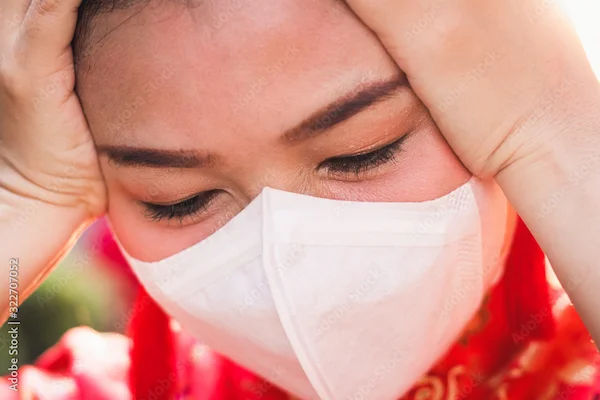HLA-B27 Test Overview and Information
Discover the HLA-B27 test, its purpose, procedure, and role in diagnosing autoimmune conditions like ankylosing spondylitis and other inflammatory disorders.


If you or a loved one has been experiencing joint pain, stiffness, or inflammation, your doctor may have recommended an HLA-B27 test. This simple blood test can help diagnose certain autoimmune conditions, particularly those affecting the spine and joints.
In this article, we’ll explain what the HLA-B27 test is, why it’s important, and how it can help in diagnosing and managing certain health conditions.
What is the HLA-B27 Test?
The HLA-B27 test checks for the presence of a specific protein called Human Leukocyte Antigen B27 (HLA-B27) on the surface of your white blood cells. This protein is part of your immune system and plays a role in how your body responds to infections and diseases.
While having the HLA-B27 gene doesn’t always mean you’ll develop an autoimmune disease, it is associated with certain inflammatory conditions, such as:
- Ankylosing Spondylitis (a type of arthritis affecting the spine)
- Reactive Arthritis (joint pain triggered by infections)
- Psoriatic Arthritis (arthritis linked with psoriasis)
- Juvenile Rheumatoid Arthritis (arthritis in children)
Consult a Top Specialist
Why is the HLA-B27 Test Done?
Your doctor may recommend this test if you have symptoms like:
- Chronic back pain and stiffness (especially in the morning)
- Swollen, painful joints
- Eye inflammation (uveitis)
- Skin rashes (psoriasis)
- Digestive issues (linked with inflammatory bowel disease)
The test helps confirm or rule out autoimmune conditions associated with HLA-B27.
How is the Test Performed?
The HLA-B27 test is a simple blood test. A healthcare professional will:
1. Clean the area (usually your arm) with an antiseptic.
2. Insert a small needle to draw a blood sample.
3. Send the sample to a lab for analysis.
No special preparation is needed, and you can resume normal activities afterward.
Get Your Health Assessed
Understanding Your Test Results
Below are the interpretation of the test results,
- Positive Result: Means HLA-B27 is present in your blood. This doesn’t always mean you have an autoimmune disease, but it increases the likelihood.
- Negative Result: Means HLA-B27 is not detected. However, some people with autoimmune conditions may still test negative.
Your doctor will interpret the results along with your symptoms and other tests to make a diagnosis.
What If You Test Positive for HLA-B27?
A positive result doesn’t guarantee you’ll develop an autoimmune disease, but it does mean you may be at higher risk. Here’s what you can do:
1. Monitor Symptoms
- Keep track of joint pain, stiffness, or swelling.
- Report any new symptoms (eye redness, skin rashes) to your doctor.
2. Stay Active
- Gentle exercises (yoga, swimming, walking) can help maintain joint flexibility.
- Avoid prolonged sitting or inactivity.
3. Eat an Anti-Inflammatory Diet
- Include fruits, vegetables, whole grains, and omega-3-rich foods (like fish, flaxseeds).
- Reduce processed foods, sugar, and excessive red meat.
4. Manage Stress
- Stress can worsen inflammation and practice relaxation techniques like meditation.
5. Regular Check-ups
- Follow up with a rheumatologist if needed.
When to See a Doctor?
If you experience:
- Persistent joint pain or stiffness
- Swelling in the knees, ankles, or lower back
- Eye redness or vision changes
- Unexplained rashes or digestive issues
Consult a doctor for further evaluation. Early diagnosis can help manage symptoms better.
Book an HLA-B27 Test with Apollo 24|7
If your doctor has recommended an HLA-B27 test, you can easily schedule a blood test through Apollo 24|7.
Final Thoughts
The HLA-B27 test is a helpful tool in diagnosing autoimmune conditions, especially those affecting joints and the spine. While a positive result doesn’t always mean you’ll develop a disease, it’s important to stay aware of symptoms and maintain a healthy lifestyle. If you have concerns about joint pain or related symptoms, talk to your doctor and consider getting tested. Early detection and proper care can make a big difference in managing your health.
Consult a Top Specialist
Consult a Top Specialist

Dr. Rajib Ghose
General Physician/ Internal Medicine Specialist
26 Years • MBBS
Kolkata
B Ghose Foundation Doctor's Chamber, Kolkata
(50+ Patients)

Dr. Rajib Ghose
General Physician/ Internal Medicine Specialist
25 Years • MBBS
East Midnapore
VIVEKANANDA SEBA SADAN, East Midnapore

Dr. Manish Mathur
General Physician/ Internal Medicine Specialist
23 Years • MD Physician, MRCP
Delhi
The Medi Centre, Delhi

Dr. Imtiyaz Khan
General Physician/ Internal Medicine Specialist
6 Years • MBBS,MD
Bengaluru
Apollo Clinic, Sarjapur Road, Bengaluru

Dr. Moumita Roy
General Physician/ Internal Medicine Specialist
8 Years • MBBS , MD (Anesthesiology)
Kolkata
VDC Clinic, Kolkata
Consult a Top Specialist

Dr. Rajib Ghose
General Physician/ Internal Medicine Specialist
26 Years • MBBS
Kolkata
B Ghose Foundation Doctor's Chamber, Kolkata
(50+ Patients)

Dr. Rajib Ghose
General Physician/ Internal Medicine Specialist
25 Years • MBBS
East Midnapore
VIVEKANANDA SEBA SADAN, East Midnapore

Dr. Manish Mathur
General Physician/ Internal Medicine Specialist
23 Years • MD Physician, MRCP
Delhi
The Medi Centre, Delhi

Dr. Imtiyaz Khan
General Physician/ Internal Medicine Specialist
6 Years • MBBS,MD
Bengaluru
Apollo Clinic, Sarjapur Road, Bengaluru

Dr. Moumita Roy
General Physician/ Internal Medicine Specialist
8 Years • MBBS , MD (Anesthesiology)
Kolkata
VDC Clinic, Kolkata
Get Your Health Assessed
₹4550(₹11375)60% off



.webp)

